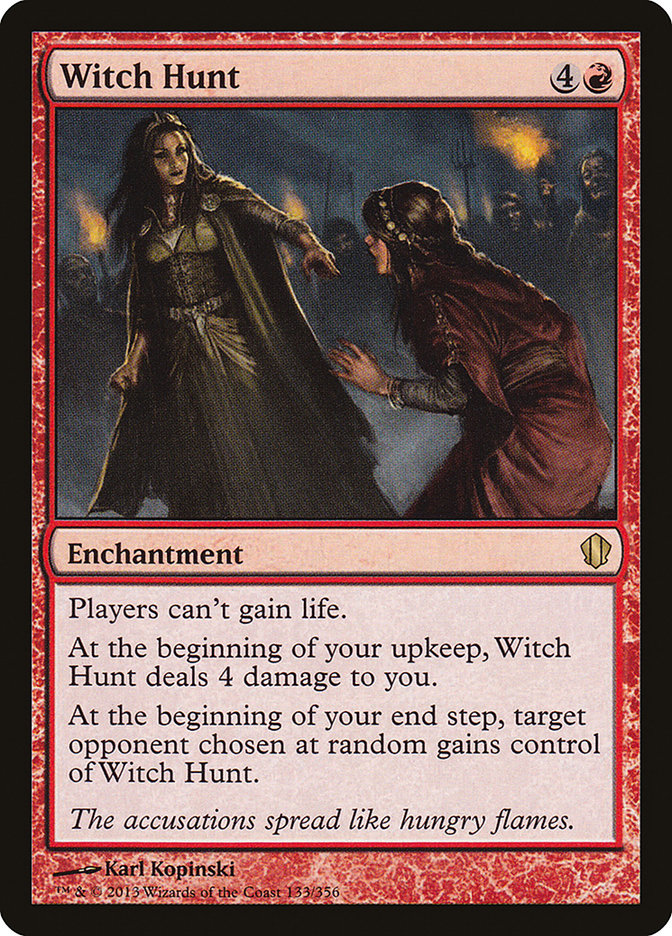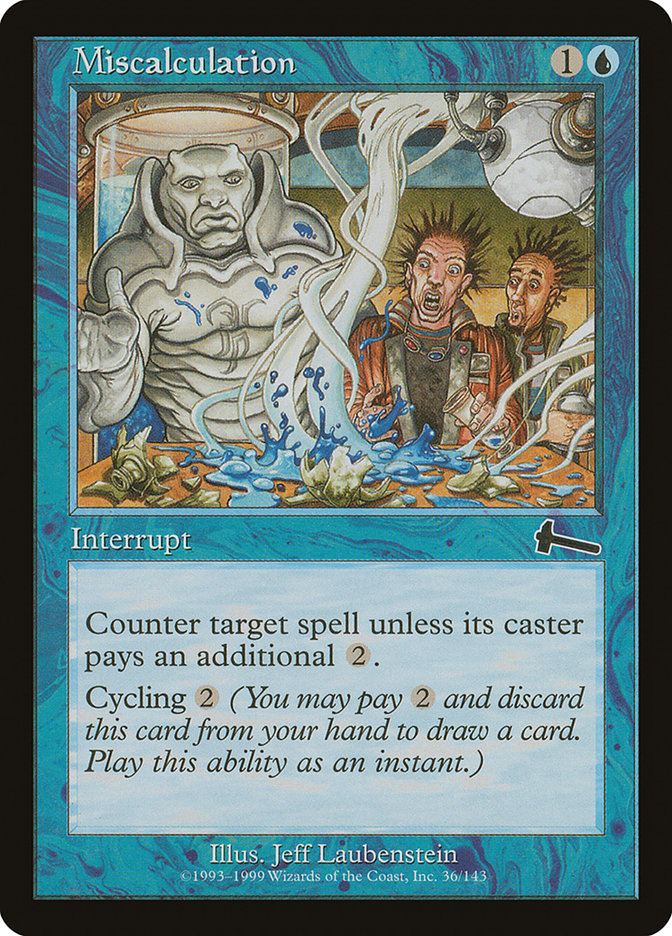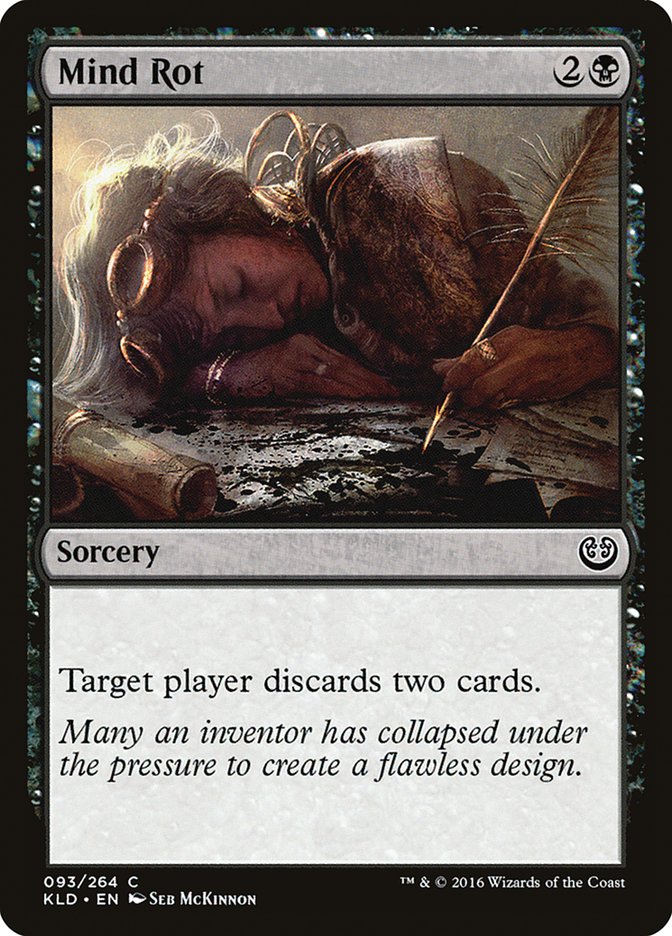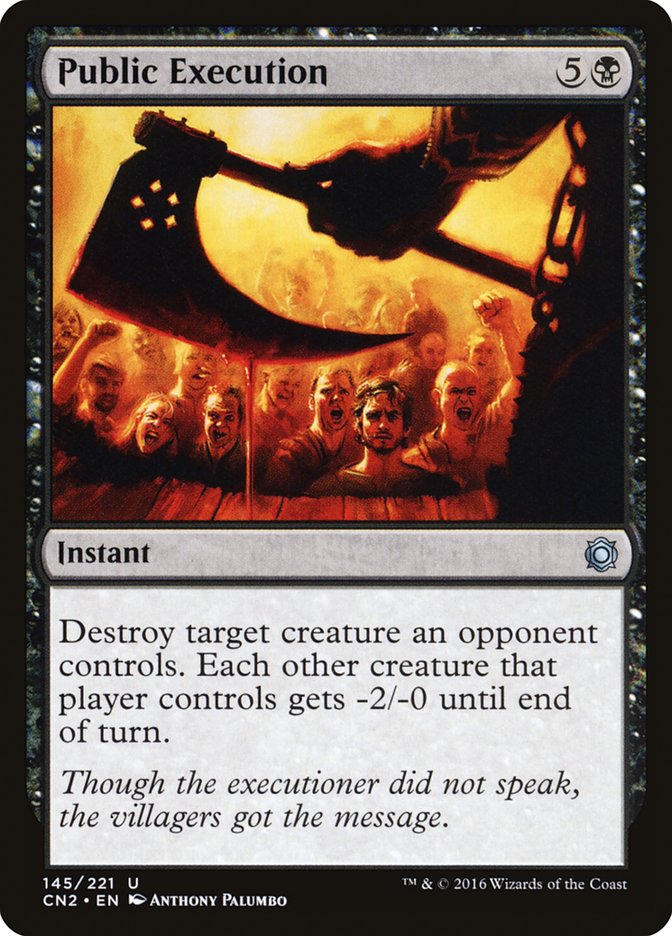Just another day at the office.
You’re enjoying a game of Magic: The Gathering during a tournament. The game is going well when all of a sudden a worried look spreads across your opponent’s face. Their brow flutters and furrows, and they look you dead in the eye.
“I think there’s a problem with the game state.”
You knew this was coming. They had missed a few mandatory triggers, and you decided to not say anything despite being fully aware they were missing things.
The opponent raises their hand and screams “judge.”
You can do a couple of things here:
1. Feign ignorance. “I’m sorry, Miss Judge, I was heavily focusing on the game and I couldn’t keep track of all my opponent’s missed triggers!” Smooth.
2. Tell the truth. “I absolutely knew they were missing them. It isn’t my job to help them, Miss Judge.”
You see the judge walking over your way when all of a sudden a sign pops up in front of you:
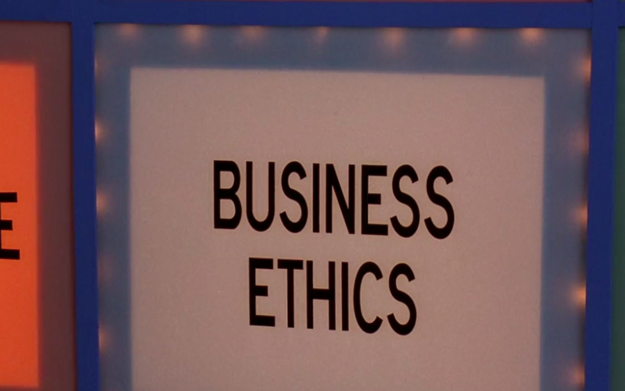
“The game state can be summarized in…*ahem*”
“Yea…um…this Magic game state is…”
“You see, the thing about this Magic game state is…”
The judge wants your side of the story, but you’re far more concerned with getting a free win, so you kind-of-sort-of-maybe give a very bad picture of things, hoping it will sway the judge into thinking that your opponent maliciously forgot things. You know better, but hey, Magic is a blood sport, right? Why be diplomatic when you can get something for free? The judge rules that your opponent made a mistake, and that you observed the mistake and also did nothing based off the information you gave her. You both get a warning.
And then this is you:

The last few months have been…you know…kind of kooky when it comes to dealing with exactly what you’d do in a given situation. Lots of Monday morning quarterbacks have come out of the woodwork to lead either witch hunts or very elaborate Reddit threads about cheating, intent, or mistakes. These don’t really serve to do much except pollute the actual landscape of preventing cheating in games of Magic, because the fake instances of cheating or accidental intent are quickly lumped in with the proven cases of actual cheating. False parallels are drawn, and before you know it, we have a situation that has rapidly grown out of control in the Magic community.
Not everyone is cheating. Not everyone is deserving of your ire.
Some people are cheating. Those people deserve your ire.
Where to begin?
Okay. A joke. Why do cows have hooves instead of feet?
Give up?
Because they lactose.
Lactose. They don’t have toes. Lack. Toes.
We can really get started now that I’ve defused your already-growing anger at me.
Understanding Intent
Sometimes games of Magic become grossly overcomplicated, with difficult-to-navigate battlefield states coupled with multiple decision trees. A detail, missed trigger, or accident isn’t a wildly novel concept, as keeping track of a dozen or so important details isn’t something every player is capable of. I, myself, have made plenty of mistakes when it comes to remembering things like life totals, a trigger here and there, or even something as silly as playing my land for the turn. Remember, Magic isn’t just about playing your opponent; it’s every bit about playing yourself and racing against the clock. Mistakes, as they say, will happen.
An easy conclusion to jump to is that you or your opponent cheated. Simple and clean, right? They cheated you. They played that extra land on turn 20. What you may have failed to mention is that their turn was about four minutes long and that the combat step you both had took up most of that time. Your blocks were extremely tough and took you a few moments to set up. There were a flurry of spells cast in response to some removal spells, along with counters and cards meant to help preserve some of your creatures from damage. Your opponent played a land in their second main phase and passed. After you lost, a friend, who, mind you, chose to not call a judge, pointed out that they played an additional land against you post-combat. Let’s just attribute our loss to that, even though it didn’t have much bearing.
However, sometimes intent isn’t innocent. Sometimes it’s very malicious, or meant to exploit knowledge of the rules. During a match some years ago I watched a player ask his opponent if a he could do something, and his opponent replied, “You can cast that, if you want.” Of course, the spell didn’t resolve the way the player thought it would, and instead of his opponent simply saying “I don’t know” or “Maybe you should call a judge,” he chose to “help” the player. The player was clearly bummed out that he’d been goaded into making the wrong play, but learned a valuable lesson. Was it scummy of his opponent to lead him down a false path? Some of you are probably sitting at home and whispering “What a miser” under your breath. Some of you are probably saying “Yeah, that’s not cool.”
Some people simply miss things, and others try to work the fullest extent of the rules to their advantage. Yes, rules exist, but yes, there is a gray area that comes with being a good sport.
The first two are the lesser of extents of either misguided or ill intent, but we all know there’s a more sinister level.
Understanding When Cheating Is Real
You’ll see casual acts of cheating get written off as sloppy play or some other mischaracterization, or something as “innocent” as shuffling. Here are some very basic tips to help aid you if you think you are being cheated:
1. Always keep track of life with a pen and paper, not dice. When I am not in the midst of doing something during my turn or my opponent’s, I am always holding my pen. I have very few life-related discrepancies over the duration of a game because if anything even remotely happens that affects life, I take note of it. There have been many instances where my opponent forgot or “forgot” to take damage, and having a recording of it will save you headaches and allow you to give a judge the most pertinent information.
2. When an opponent is shuffling, I’m a big fan of looking them right in the eyes, especially during the presentation period prior to games. That way, if they are overhand shuffling or some other method and I see them look down, I’ll know what’s happening and if they are trying to gain information about my deck. If I honestly in my heart feel like they are cheating, I will call a judge over. This almost never happens, but it does not behoove you to write it off as something as simple as a mistake. Shuffle cheaters are habitual, and they will do it during a tournament as many times as they can before they inevitably get caught.
3. An opponent intentionally disregarding triggers, both negative and beneficial, needs to be corrected immediately. Game state is something to be preserved and not exploited.
4. Intentionally disregarding intent is poor form. There are going to be people who defend it all day, every day: “It’s the rules, Mark.” Seriously? Those are the folks who are the saltiest when it happens to them. They’ll try to hit you with the corner cases. “They didn’t announce the trigger!” You know exactly what situations I’m talking about. One of them rhymes with “Schmorborygmos.” Have some class.
The above situations are just a microcosm of cheating that occurs, including people bold enough to hide cards under their playmats or the ones who will wait for something to grab your attention while they’ll yank something from their graveyard and put it into their hand. My grandmother once told me, “Do you know why there are rules that sound stupid? It’s because someone did something that stupid once to warrant them.”
You may ask yourself, “How is someone that dense that they’d cheat on camera?” That’s an easy answer: cheaters don’t understand the consequences of their actions. When a person wantonly stacks a deck on camera, they are doing it because they have no concept for what is about to happen to them. Somewhere in the back of their minds they may have already reconciled that once they get caught and the jig is up, at least at some point they got away with it and gained whatever makeshift glory they were able to suck out of a game.
It’s miserable, really. Would you want to be that person? Nice trophy sitting on your mantle. I’m sure getting banned for three years and giving back all that money you won was totally worth it.
I can’t give you every fix to cheating, but I can tell you this: stay vigilant, constantly pay attention, and even if you’re having the best time in a game of Magic, it doesn’t mean your opponent isn’t above cheating. That kind of power also means you shouldn’t cry foul at everything that may confuse you or seems out of place. I give people the benefit of the doubt unless I’m actively watching them cheat. That’s when the hammer gets dropped.
Understand That Not Everyone Is the Witch
We get it. You’re astute, internet. No one ever accused Magic viewers of being anything less than one of the best detective agencies on the planet.
However, the disconnect between “what might have happened” and “what we’re going to freak about now and then worry about facts later” has become wanton at this point. The good thing about Magic is that a lot of high-profile events receive a ton of coverage, and if there’s an issue, chances are things will be brought to light. Magic judges are actually incredibly competent people, and many of them are exceedingly good at their job. No lie! I’m not fooling! If you spot something that looks extremely fishy, send it to the tournament organizer or the judge staff involved. Let nature take its course, and if found guilty, that player will be punished, hopefully to the fullest extent possible.
We’ve seen some of the best and brightest of the SCG Tour subjected to widespread ridicule for simple mistakes on camera. All of a sudden, numerous victories get boiled down to a simple “Oh…they must have cheated this whole time.” Most scenarios are tossed out with Tuesday’s trash, because they’re unsubstantiated and were usually a simple oversight or mistake.
Remember that: mistakes happen. Everyone is human. It’s okay to make them.
Joining riot threads on Twitter or Facebook to sink someone’s personal image or legacy is a bad choice, and all it does it create a bigger and bigger haystack that makes finding the actual needles more difficult. We want to weed out every cheater and con-artist, not the person on camera whose sleeves may have stuck together when they went to draw and they accidentally saw an additional card. That person doesn’t require Twitch chat screaming “cheater” at them. Understand the difference between accidental and intentional. You might wonder where that line is drawn; how can we tell the difference? Sometimes you can’t, but for the most part every cheater gets theirs when caught. Almost all of them, for that matter. But sentencing every single player who makes a mistake to public execution sets a terrifying standard.
Now if you’ll excuse me, I have to start getting my things together for #SCGKNOX this weekend. Team Nexus is coming out for Emma Handy’s birthday, and if there’s one thing I love, it’s seeing one of my best girls happy. Be sure to spam the living heck out of her on Twitter and in the comment section of her article, because birthdays are awesome and so is she. I’m going to try to talk Tannon Grace into wearing a party hat the whole event. Wish me luck!
Oh, and play W/U Flash this weekend. It’s the best deck. There’s your Standard offering for the week.
Like you come here for deck advice in the first place. Pfffffft.


